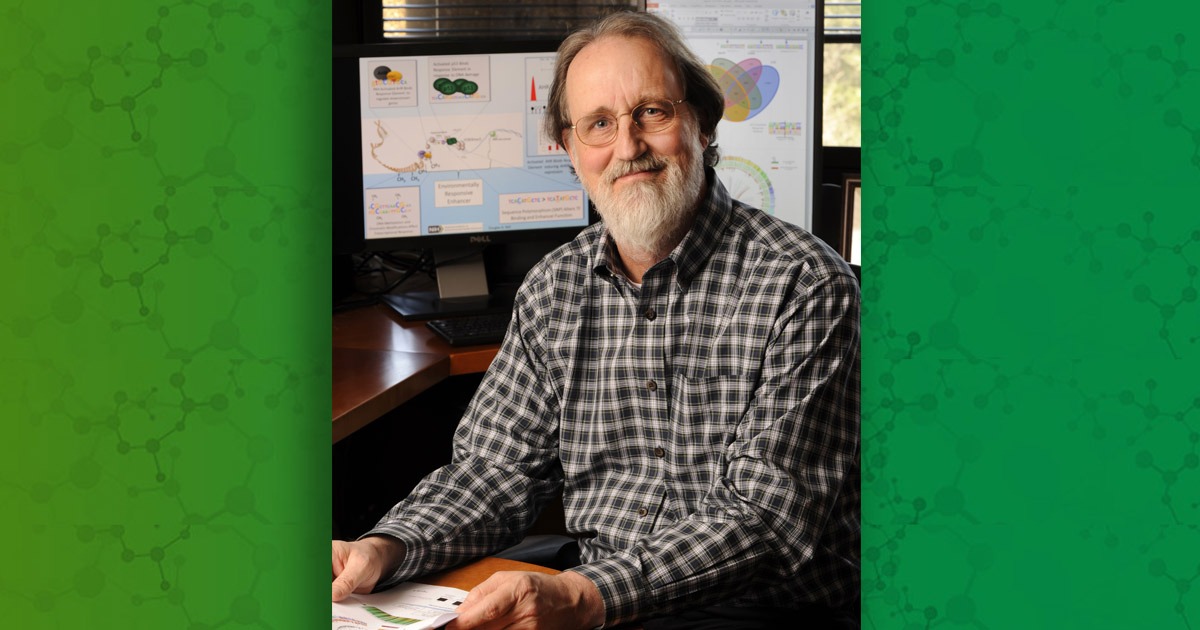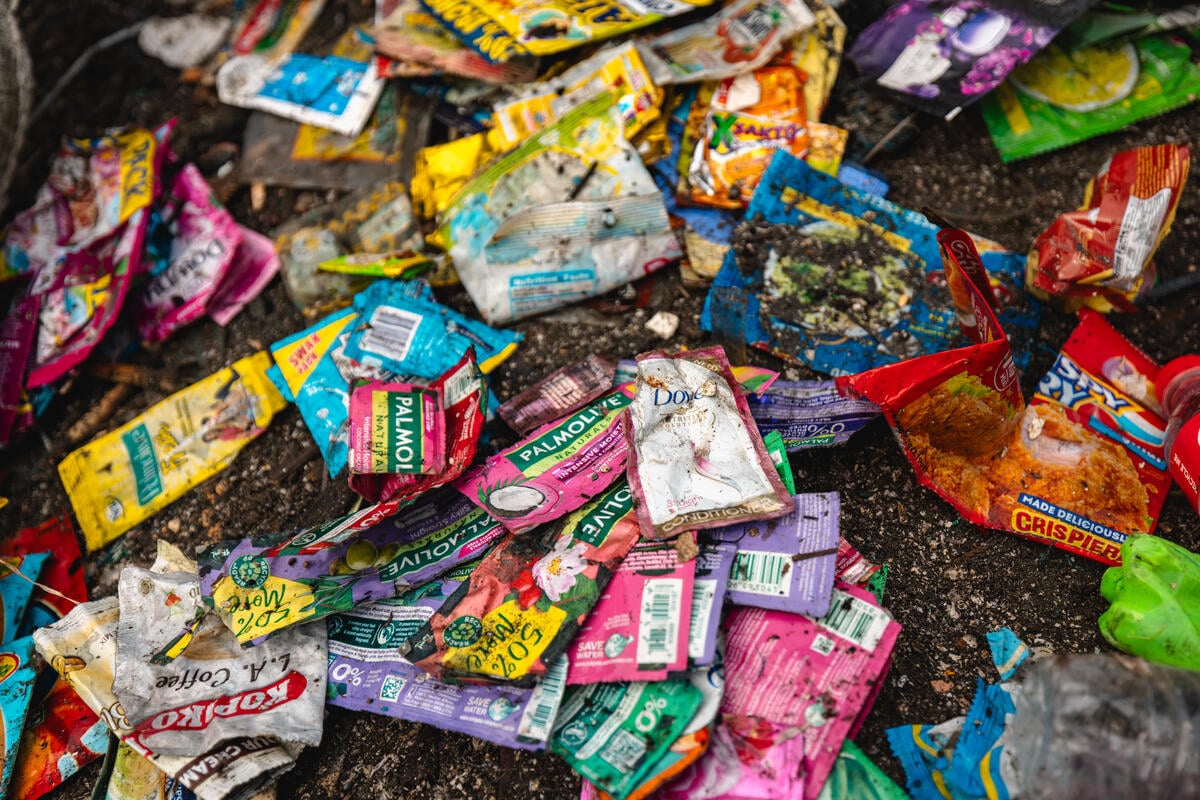Douglas Bell, Ph.D., has made it a focus of his career to study how genetic variability contributes to a body’s response to toxic exposures. During his 33 years at NIEHS, Bell’s research shed new light on how genes affect a person’s susceptibility to cancer-causing agents and how gene-environment interactions drive disease.
Bell retired from NIEHS in March as head of the Environmental Epigenomics and Disease Group in the Immunity, Inflammation, and Disease Laboratory. He also held secondary appointments in the Epigenetics and Stem Cell Laboratory and the Genome Integrity and Structural Biology Laboratory.
“Doug has had an illustrious career at NIEHS spanning more than three decades,” said Darryl Zeldin, M.D., NIEHS scientific director. “His research has led to the discovery of genetic and epigenetic factors that mediate responses to environmental exposures and has helped identify novel risk factors and prevention strategies for common human diseases, including cancer.”
“He has also been an outstanding member of the NIEHS community, serving as president of the NIEHS Assembly of Scientists and a valued member of multiple committees and advisory groups,” Zeldin added.
Where there’s smoke
Bell received his master’s and doctorate degrees in environmental chemistry and biology from the University of North Carolina at Chapel Hill. He attended graduate school, which he describes as a six-year vacation compared to his short stint teaching middle school science. It was during graduate school in the early 1980s that he began studying smoke — tobacco and wood smoke, as well as smoke emitted as exhaust from diesel engines.
“After studying smoke for so long and looking at components that are in smoke, it’s surprising that it doesn’t just kill you right away,” he said. “There is a lot of carbon monoxide in smoke, other gaseous things, hundreds of carcinogens, hundreds of toxins that kill cells outright. Smoke has been around a long time in mammalian history, so mammals evolved ways to metabolize many of the most toxic chemicals, which is presumably why we can tolerate it to some extent.” Investigating human variability in metabolism has been a major theme in Bell’s research over the years.
Bell said although the effects of cigarette smoke on the body and the mutations its carcinogens cause are well understood in cancer, more research is needed to understand the effects of tobacco, cannabinoid, and vaping smoke on the immune system. However, chronic obstructive pulmonary disease is almost certainly an outcome of long-term smoking of any kind, he said.
Creativity and collaboration
A self-described experimentalist at heart, Bell said his curiosity stretched beyond existing methodologies to solve emerging problems.
“I have always been attracted to new problems and solutions,” he said. “I particularly enjoy the technical aspects of the science.”
Collaboration was key to both the enjoyment and advancement of his career, Bell said. In particular, he appreciated working with fellow NIEHS scientists Jack Taylor, M.D., Ph.D., Xuting Wang, Ph.D., Stephanie London, M.D., Dr.P.H., Michelle Campbell, and former NIEHS Director Linda Birnbaum, Ph.D.; Gareth Bond, Ph.D., University of Oxford; and former postdoctoral fellow, Suzanne Martos, Ph.D. Bell and his collaborators published more than 170 peer-reviewed articles in leading biomedical journals and several book chapters.
Bell’s contributions to the scientific community also include serving as senior editor for both Biomarkers and Cancer Epidemiology, Biomarkers and Prevention; editorial board member for Pharmacogenomics and Environmental Health Perspectives; and elected chair of the Molecular Epidemiology Group of the American Association for Cancer Research. He also was awarded Mentor of the Year at the 18th Annual NIEHS Science Day in 2020.
During the next chapter of his life, Bell plans to spend a lot of time cooking, gardening, and traveling with his wife, Margery Overton, a senior vice provost at North Carolina State University. As a bluegrass musician, Bell knows he will relish playing guitar for several hours a day.
(Kelley Christensen is a contract writer and editor for the NIEHS Office of Communications and Public Liaison.)
Source link
factor.niehs.nih.gov


